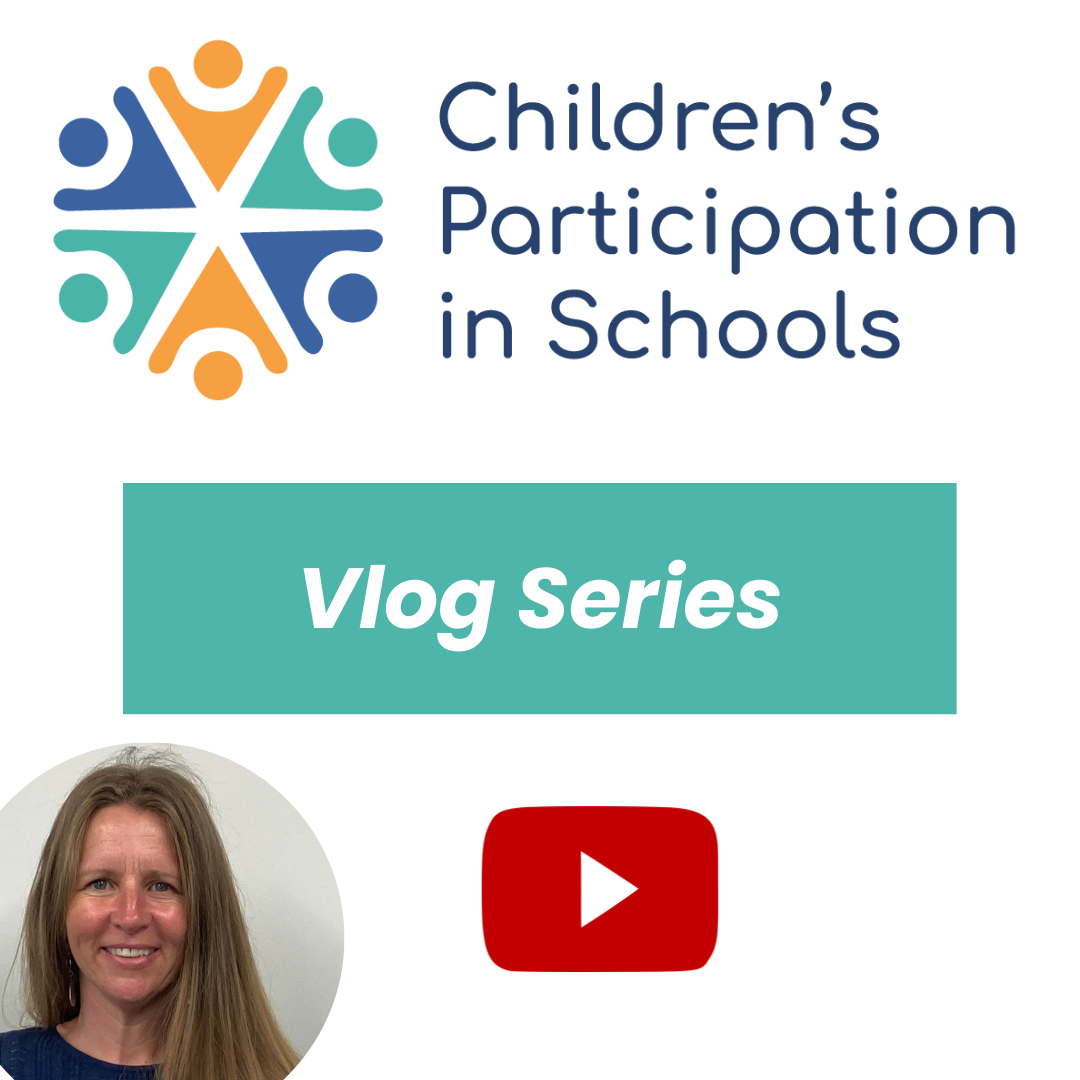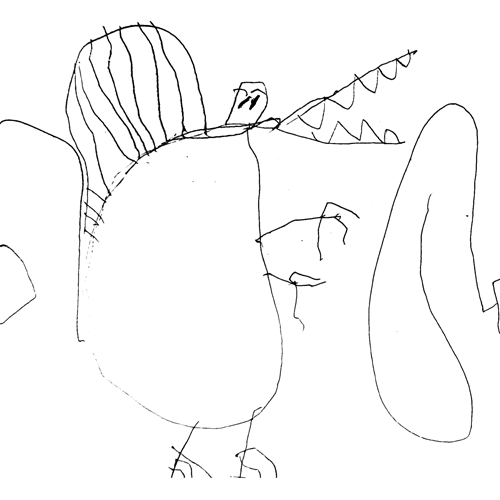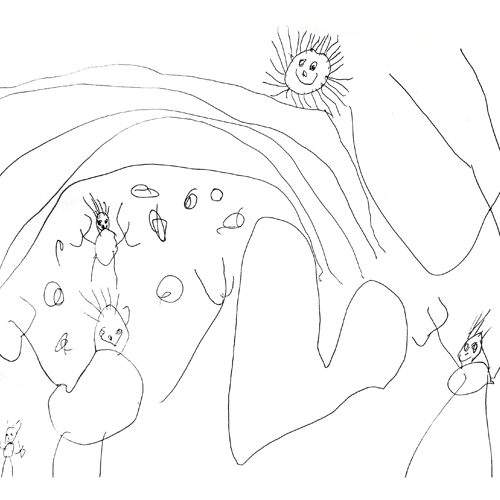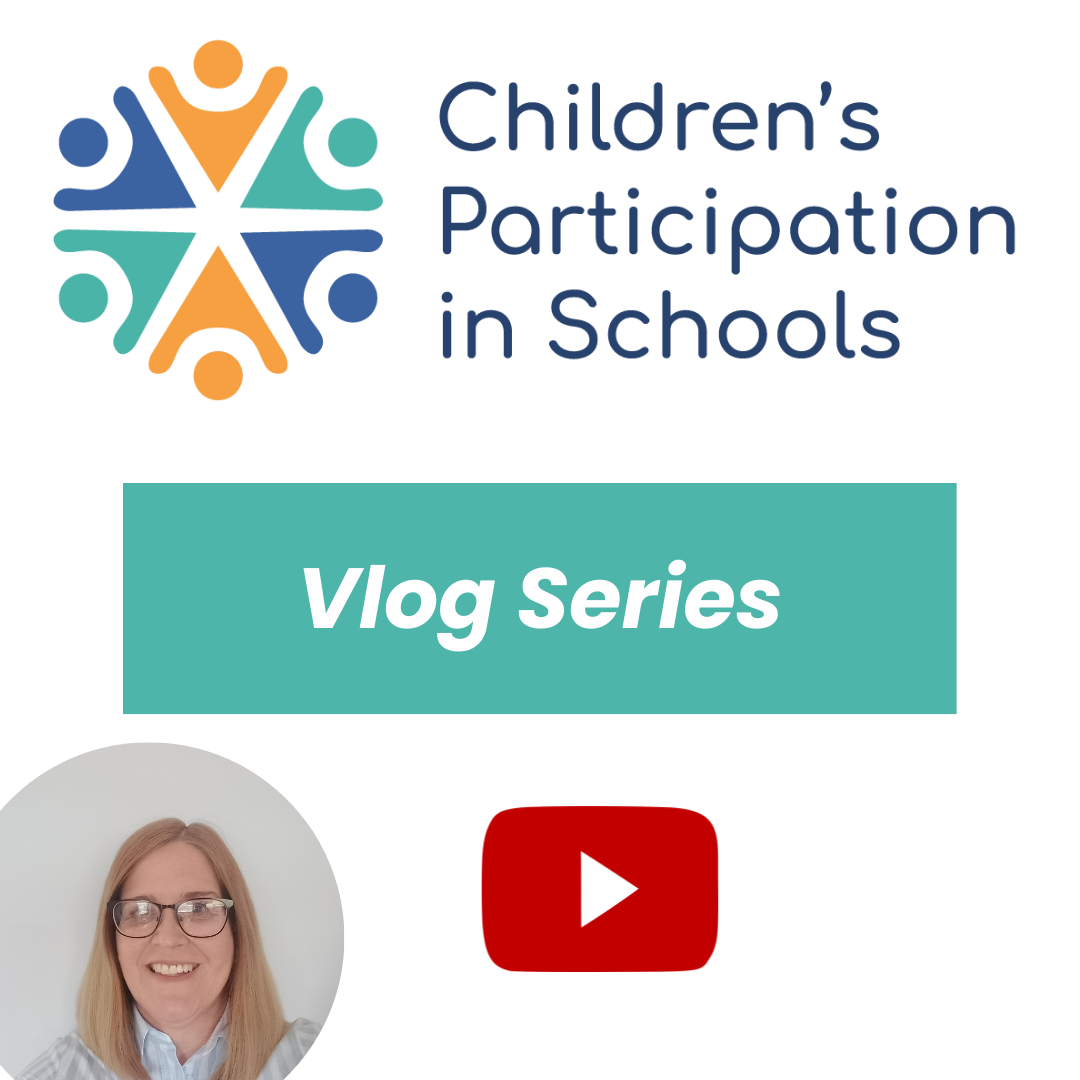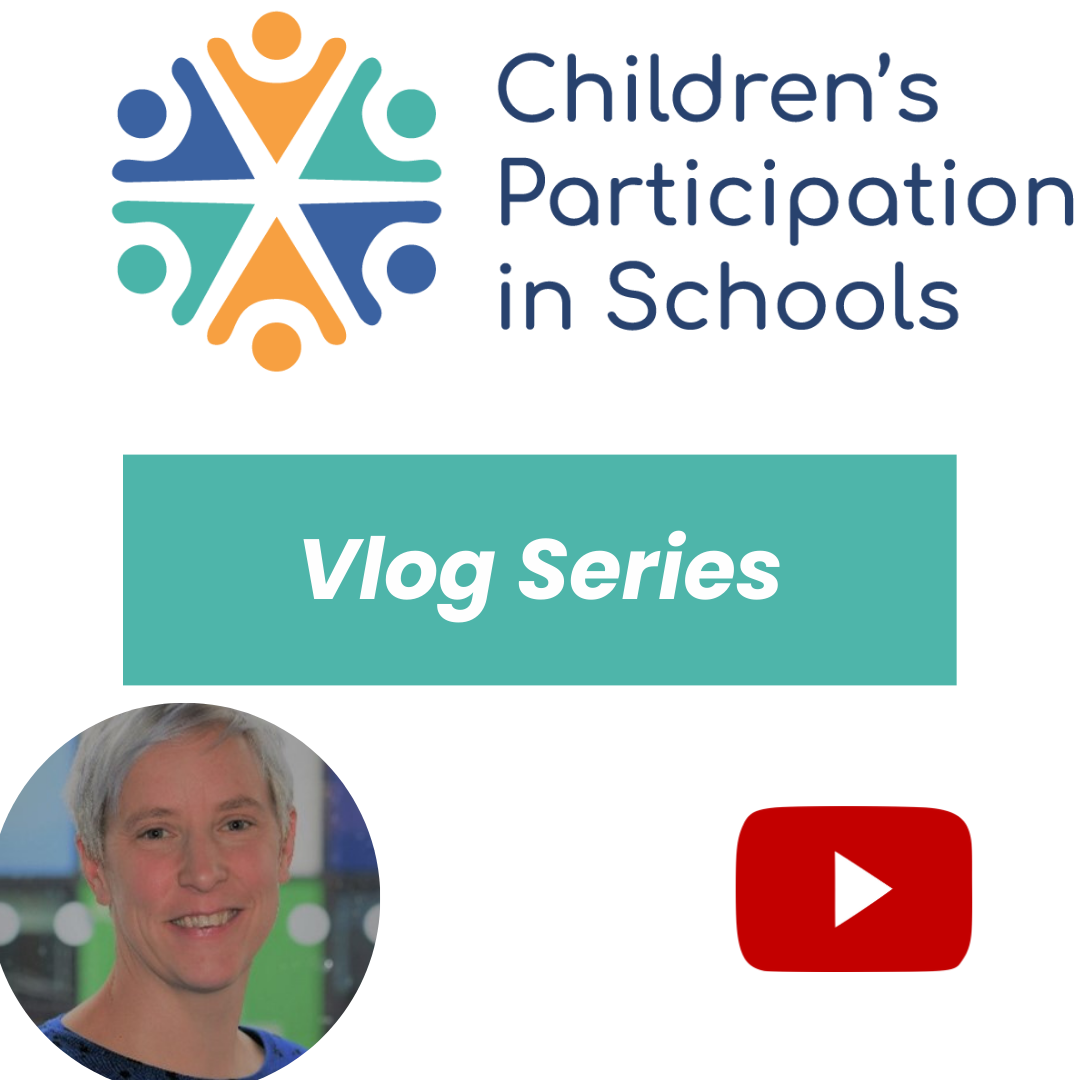Welcome to our Resource Hub for everything related to child participation in schools!
This space is designed to provide valuable information and support to teachers, schools, and students interested in promoting and fostering children's participation rights in educational settings. Here, you will find a wealth of resources including events, news and reports, blogs, vlogs, and podcasts, all centered around the theme of children's participation in schools.
In addition to the resources, our project progress is also shared through engaging formats such as blogs, vlogs, and podcasts. These formats offer dynamic and accessible ways to stay informed about the latest updates and developments in our project, as well as thought-provoking discussions on children's participation rights.
We strive to provide a comprehensive and diverse collection that caters to the needs of parents, educators, policymakers, and researchers. We also encourage you to contribute to our Resource Hub by getting in touch with any resources you would like to share. To access the Resource Hub, simply click on the links in the menu below.
Project Publications
Project-specific publications such as posters, reports, and updates give details of our research and provide insights into our methodology and research findings.
Blogs & Vlogs
Stay up to date with our research progress, methodological challenges, and discoveries through our team’s blogs and videos. We also feature relevant blogs and vlogs from other sources to provide a broader perspective.
Information & Reports
Explore a curated collection of information and reports on children's participation, sourced from external organisations. Please note that these resources may not necessarily reflect our project's views or endorsements.
Research Articles
Discover research findings, reports, and studies conducted by other organisations and researchers who focus on children's participation. This section offers diverse perspectives on the topic. Again, please note that these resources may not necessarily reflect our project's views or endorsements.
Latest Resources
CPiS Vlog Series - Vlog 8
In this vlog, Jane Waters-Davies and Jacky Tyrie sit down to discuss our work with student teachers and teacher educators in one ITE partnership in Wales.
CPiS Infographic Series - 3 WELSH (The Cycle of Meaningful Children's Participation
Building upon data from an upcoming academic paper, this infographic 'The Cycle of Meaningful Children's Participation' proposes a new model to enable children's participation in educational practice.
CPiS Infographic Series - 3 (The Cycle of Meaningful Children's Participation
Building upon data from an upcoming academic paper, this infographic 'The Cycle of Meaningful Children's Participation' proposes a new model to enable children's participation in educational practice.
Creating a culture of participation: Early childhood education and care educators in the face of change
This study reports on critical participatory research in an early childhood education and care centre in Finland.
Child participation in early childhood education in Spain: When having rights does not mean being able to exercise them
This article carried out a systematic review of the scientific literature on child participation in the formal education system in Spain between 2010 and 2022.
Enabling Children's participation: Putting the ‘good dialogues’ model into practice
Presenting results from an evaluation study of the feasibility and practical use of the Good Dialogues model, this article explores the ways in which practitioners manage to put the agenda of child-centred and child-guided dialogues with children underpinning this model into practice.
Where Are the Children’s Voices? A Scoping Review of Autistic Children’s Participation in Primary School Recess
This scoping review synthesizes research on recess involving autistic children, mapping data to a participation framework: the family of participation-related constructs (fPRC).
Participatory Research With Children: From Child-Rights Based Principles to Practical Guidelines for Meaningful and Ethical Participation
Based on UNCRC principles for ethical and meaningful child participation, this paper conceptualises practical guidelines for participatory research with children and youth
Blog: Reflections of an Intern on the Children’s Participation in Schools Project
In this blog, student intern Eve Parry reflects on her experience on the Children's Participation in Schools project
Blog - Reflections of a research administrator
In this blog, Research Administrator Georgia Fee reflects on her experience on the Children's Participation in Schools project
A ‘Participatory School’ in Iran: A Bottom-Up Learning Approach in a Top-Down Education System
This article highlights the shift in Iran’s one-dimensional teacher-centered approach to the triangular student-facilitator-parent approach.
UNCRC Symbol Cards
A resource tool designed to be used as a communication tool for children and young people who are non-verbal, have speech and language difficulties or have additional support needs to promote understanding of their rights.
Children’s rights in Great Britain – Submission to the UN Committee on the Rights of the Child December 2022
This policy document outlines areas they have identified as priorities for the UNCRC to review. The purpose of this document is to identify gaps in protection for children and provides recommendations where further action is required
Children’s rights in Great Britain – Submission to the UN Committee on the Rights of the Child December 2022
This policy document outlines areas they have identified as priorities for the UNCRC to review. The purpose of this document is to identify gaps in protection for children and provides recommendations where further action is required
Protest songs and poems get Barton pupils heard by local decision-makers
Year 5 students expressed concerns about issues including racism, human rights and the environment through a performance of protest poems and songs in Newport. Explores the different ways children learnt to make their voices heard in techniques that are unique to them
Celebrating Human Rights Day – Children & Young People’s Commissioner Scotland
For Human Rights day the Children and Young People’s Commissioner Scotland worked on a project to explore children’s experiences of rights through creative means of a song. Children explored their rights and what mattered to them by creating a song teamed with Sprog Rock and the commissioner.
ABCDE of Rights - UNICEF
This document provides information for practitioners to implement rights into their lessons for young children to learn, understand and internalize. Promotes how the concept of rights is universal and inherent.
Article of the week (UNICEF) – Views of the child – Article 12 (powerpoint)
This article provides information about Article 12, what it represents and how to promote it in settings. This powerpoint offers valuable activities that can be implemented for both primary and secondary schools to get children thinking about their rights and what it means through activities tailored to them.
Changing the Narrative: supporting street-connected children's participation and leadership
This recording of the 'Changing the Narrative' session at CSC's Network Forum 2024 explores a toolkit to build street-connected children's confidence and capacity to lead or participate in advocacy. Research and policy makers speak on findings from child-centered research and perspectives from the UN on child-centered and child-led approaches within advocacy.
Values and Needs of Children With and Without Special Educational Needs in Early School Years: A Study of Young Children’s Views on What Matters to Them
56 children aged 5-7 in Sweden share matters that they consider important for their wellbeing and development. Themes are found and compared to previous linked research.
Voice, views and the UNCRC Articles 12 and 13
Focusing on children aged 4-8, this research article presents the lack of voice children are facilitated within England’s education system.
Toddlers with the Doll Carriage: Children Doing Space of Participation in Early Childhood Education
This article presents a collection of small stories from a Finnish ECE center focusing on children under the age of 3 years. The findings of this article showcase the benefits of material items for children’s ownership of space, constructing peer relationships, and creating boundaries of one’s space.
Blog: Running a Network – what, how and why?
In this blog, Dr Jacky Tyrie reflects on the process of setting up a project based network, its challenges and successes and our hopes for the future.
Children’s climate participation and voice: Games as a way to amplify children’s participatory rights in Ireland
This policy brief reports on the findings of a study investigating children’s participation in relate to climate change decision making.
Young Wales Report to the United Nations Committee on the Rights of the Child
This report from Young Wales concerns the experiences of young people in relation to their human rights and was submitted to the UN Committee of the Rights of the Child.
Teachers’ role as human rights educators: the views of citizenship educators in England and Japan
Drawing on interviews with expert citizenship teachers in England and Japan, this paper draws on empirical insights into teachers’ roles as human rights educators in relation to students’ participation rights
Participatory research methods with young children: a systematic literature review
An up-to-date systematic literature review on the use of participatory research methods with young children.
Early Childhood Education in Wales: Policy, Promises and Practice Realities
This paper, co-written by co-investigator Dr Jane Waters-Davies examines two critical aspects of the education policy-practice landscape in early years education in Wales.
A rights-based exploration of children’s pedagogic voice in the classroom.
This recent article led by Gaby Martinez Sainz and the fabulous team at the Children’s School Lives project in Ireland, is worth a read to anyone interested in our research.
CPiS Policy Briefing WELSH
This policy briefing concerns findings from a legislative and policy analysis of Welsh education documentation relation to young children’s participative rights in schools.
CPiS Policy Briefing
This policy briefing concerns findings from a legislative and policy analysis of Welsh education documentation in relation to young children’s participative rights in schools.
Student voice for promoting inclusion in primary schools
This paper reports on the findings of a study which focused on exploring how inclusion in a primary school setting can be promoted through an engagement with student voice.
Student voice and teacher voice in educational research: a systematic review of 25 years of literature from 1995–2020
This systematic describes the link between student voice and teacher voice, providing a framework for identifying the extent to which certain views and perspectives are prioritised in research, and whether the participatory function of the positioned research is doing what it sets out to do.
Developing a model for child participation in child welfare services
This article reports on the development of a child participation model in child welfare services
CPiS Infographic Series - 2 (Survey to ITE providers)
Infographic 2 reports on our findings from a survey administered to ITE providers across Wales.
CPiS Infographic Series - 1 (Legislative and Policy Analysis)
Welcome to our infographic series where we present our project findings in an accessible and visual format. Infographic 1 highlights our findings from a legislative and policy analysis of documents in the Welsh educational context
CPiS Vlog Series - Vlog 7
In this vlog Dr Jacky Tyrie and Georgia Fee talk about our public engagement efforts during the project.
Blog: Charting the current picture – critical analysis of existing legislation and policy frameworks
Our team have undertaken a critical analysis of existing policy and legislation in the educational context in Wales. Check out this blog to find out more!
Blog: Bridging the Gap? Investigating young children's participative rights across Initial Teacher Education and Professional Learning in Wales
This blog describes the methodology used by our team when investigating initial teacher education, and professional learning opportunities in Wales and how they attend to young children's participation rights.
Blog: Reflections on year one of Children’s Participation in Schools (CPiS), a 3-year ESRC funded project
In this blog P-I Sarah Chicken reflects on the first year of the project, including the highlights, challenges and ways the team has adapted throughout the research process.
Blog: The implementation gap between child rights policy and practice in Welsh primary schools.
This blog written by team member Professor Jane Williams discusses the first stage of our research - a legislative and policy analysis of documentation related to children's rights in the Welsh educational context.
The role of beliefs in teacher agency.
In this paper, the researchers draw upon results from a two-study into teacher agency in Scotland to consider different ideological debates about its role.
CPiS Vlog Series - Vlog 6
In this vlog, Research Associate Dr Patrizio DeRossi answers questions on the use of Reflective Thematic Analysis in our research.
Look who's talking: Eliciting the voice of children
Grounded in children’s rights, this special issue aims to advance understanding of the affordances and constraints of implementing Article 12 of the United Nations Convention on the Rights of the Child (UNCRC) in educational settings with young children – those aged seven and under
Theorizing student voice: Values and perspectives.
This article explores some of the core values which underpin student voice work
Whose ‘voice’ is it anyway? The paradoxes of the participatory narrative
This study discusses some of the paradoxes found in the rhetoric of participatory research with children.
Hearing young children's voices
This paper reports on a study that aimed to investigate if ‘eliciting their children’s voices impacts on the children’s learning, development and well-being, and if so, how’.
Embracing the UNCRC in Wales (UK): Policy, pedagogy and prejudices
This paper reports on a meta-analysis of quantitative and qualitative data that suggests that the models of childhood held by teachers impacts on how they respond to the UNCRC
Exploring the extent of enactment of young children's rights in the education system in Wales
This paper presents the findings of a review of readily available empirically based literature that evidences the extent to which young children in Wales (aged three to seven) routinely access their rights in education settings
Bridging the theory and practice of eliciting the voices of young children: Findings from the look Who's talking project
This article explores issues relating to the complex, challenging and under-researched area of eliciting child voice, from the perspective of practitioners working with children aged from birth to seven
Preservice Teachers' beliefs about childhood: Challenges for a participatory early childhood education?
This study examines preservice teachers' beliefs about childhood in an attempt to see how they may support an active, participatory role for children in early childhood education (ECE).
Belonging, community and capability: Listening to the voices of young children to realise process quality in early childhood curriculum enactment in Wales
This paper addresses the problem of how to achieve process quality in early childhood education (ECE) in a manner that attends to young children’s views
Universities' Council for the Education of Teachers case study
This article depicting the Children's Participation in Schools project was published as part of UCET's Case Study on good practice in educational research
Can you hear me? Problematising the enactment of UNCRC Article 12 in Welsh early years classrooms, exploring the challenges of ‘children’s voice’
This paper explores teacher enactment of the UNCRC Article 12, a child’s right to participate and give their view within the context of Welsh early years settings (children aged 3-7)
CPiS Vlog Series - Vlog 5
In this vlog Jacqui Lewis discusses our use of a Children's Advisory Group in our research
CPiS Vlog Series - Vlog 4
In this vlog - Co-Investigator Jane Waters-Davies answers questions on our third Work Package where we are working with ITE providers at Higher Education Institutions and trainee teachers
CPiS Vlog Series - Vlog 3
In this vlog, Dr Jennie Clement reports on an infographic detailing the results of a survey administered to ITE providers across Wales
A Focus Group Study on Participatory Practices in Early Childhood Education and Care Across Four European Countries
This study, inspired by the Lundy model (2007) examined teacher’s perceptions about child participation practices in 4 European Countries.
Participative rights in Welsh primary schools: Unpicking the policy rhetoric
This paper analyses and evaluates legislation and policy on children’s participative rights in Wales from 2000 to 2022, arguing there is a gap between policy and practice.
OECD: What does child empowerment mean today?
The OECD have recently launched their new piece of research ‘What does child empowerment mean today?’. Click here to find out more.
Towards attentive, playful arts-based methodology with children
This paper shares methodological insights from a piece on research which aimed to centre children on a study undertaken during the 2020 global pandemic.
Co-constructions, co-performances and co-reflections in early years qualitative research
This reflective paper written by early years researchers investigates their own role in co-construction in qualitative data analysis.
Co-constructing research
This critical literature review was written as part of the project Co-Design: Learning Reflections, part of the Arts and Humanities Research Council’s (AHRC) Connected Communities programmes and explores the topic of co-construction in research.
‘The power to SAY what I want to and it gets written down’: Situating children's and adults' voices and silence in participatory research
Co-constructed by adults and children, this paper examines and discusses the authors’ experience of a participatory research project.
Young Children’s Voices: Key Evidence from the UK
This PDF from Save the Children’s ‘Young Children’s Voices’ series provides best practice evidence from across the UK including case studies and introductions to child-centered approaches
Young Children’s Voices: Challenges
This PDF from Save the Children’s ‘Young Children’s Voices’ series highlights some challenges associated with listening to the voices of young children.
Young Children’s Voices: Benefits of Listening to Young Children’s Voice
This PDF from Save the Children’s ‘Young Children’s Voices’ series highlights the benefits of listening to children. Impacts include on the child themselves, the home environment, in settings and in the policy context.
Young Children’s Voices: Importance of Young Children’s Voice
This PDF from Save the Children’s ‘Young Children’s Voices’ series highlights the importance of listening to young children in both the UK and European policy context, as well as relating it to the COVID-19 pandemic.
Young Children’s Voices: How to write a child-friendly document
This guide from Save the Children provides step-by-step guidance on writing a child-friendly document and provides useful resources to aid the process.
Young Children’s Voices: Definition
This PDF from Save the Children’s ‘Young Children’s Voices’ series defines child voice through examples and introduces readers to the Lundy Model of Participation.
Young Children’s Voices: Practice Standards for Participation
This PDF from Save the Children’s ‘Young Children’s Voices’ series lays out 7 Practice Standards for participation.
Save the Children: Young Children’s Voices
A link to Save the Children’s ‘Young Children’s Voices’ page. Includes PDF’s and external resources on a variety of topics such as participation standards, benefits of listening to young children’s voices and examples of good practice across the UK.
Most of the Time we are Taking Decisions for Children
This paper investigates final-year student teachers in South Africa’s understanding about children’s participatory rights and how this influences their practice.
Does Participation Benefit Children’s Socio-Emotional Development? Positive Associations Between Children’s Participation and Self-Concept, Through Children’s Perceptions
This study examines associations between ECE teachers’ participation practices, observations of teacher-child interactions and children’s socio-emotional outcomes mediated by children’s perceptions of their own participation.
Exploring children’s participation from Froebelian practitioners’ perspectives in Scottish context
This piece of qualitative research investigates Scottish early years practitioners’ perspectives about children’s participation through a Froebelian lens.
Supporting Regional and Remote Children’s Participation in High Quality Early Years Services
This paper addresses the knowledge gap surrounding children’s participation in early childhood education (ECE) in regional/remote areas of Australia by exploring the perspectives of early childhood centre directors and educators who work directly in ECE services
A Caring Ethic and the Rights of the Child: Challenges for Early Childhood Education
This conceptual piece considers the following questions: what are the rights of the child, and how can these be centered in discussions of pedagogy, curricula and legislation in an American political and policy context.
Children’s participation in documentation processes in local outdoor spaces
This paper reports on a study that aimed to investigate how children ‘perform and document Land Art in local places ear their kindergarten’ and how they visualise their experience through drawings.
Questioning ‘voice’ and silence: Exploring creative and participatory approaches to researching with children through a Reggio Emilian lens
This paper draws upon the philosophy of Reggio Emilia to contribute to the debate around the ‘voice’ of the child in qualitative by exploring creative and participatory approaches to researching with children.
CPiS Vlog Series - Vlog 2
Our second video from our new vlog series. This vlog is a Q&A with Dr Alison Murphy, our Work Package 1 lead.
Parents Connect Hub: Parents and Children’s Rights
Access the children’s rights section of the new Parents Connect Hub from Children in Wales.
Includes resources such as multi-lingual UNCRC posters and an Understanding Children’s Rights booklet.
Constructing child participation in early years classrooms: An exploration from Wales
This article was written by members of our team as a precursor to the project. The paper addresses the problem that, despite supportive policy contexts, enactment of pedagogies that attend to young children's participation rights in classroom settings is highly variable.
CPiS Vlog Series - Vlog 1
Welcome to our new project vlog series! These vlogs are designed to explain and update you on the Children's Participation in Schools project in a casual and informal way. Vlog 1 is led by Co-Investigator Dr Jacky Tyrie and is an Introduction to the project and the team.
Embedding Play in Youth Settings
Guidance for youth workers on how to develop play in their settings.
Let Me Play – An Inclusive Play Park Study
This report is intended to inform policy makers about the lived experiences of families regarding their experience of fixed play parks.
Our Voices Matter: Summary Report
This summary report details the results of a research project conducted during the COVID-19 pandemic, designed to capture their voices and opinions on the pandemic.
Playboard Annual Review 2023
This report from Playboard sets out the work they have undertaken over the year April 2022 to March 2023
Learner experiences of low attainment groups in the context of a rights approach to education
This paper looks at attainment grouping in Wales and its effect on learner's experiences in the context of a rights approach to education.
Welsh Parliament – Children., Young People and Education Committee: The Welsh Government’s Draft Budget 2024-25
This report from the Children, Young People and Education Committee has laid out its report in response to the Welsh Government’s Draft Budget. You can read the report here.
Early childhood play, learning and care in Wales
Developed through co-construction by practitioners, for practitioners - these resources provide guidance for childcare, play settings and schools on early childhood play, learning and care for 0–5-year-olds in Wales.
Introduction to our project and the research process - child-friendly vlog
This video created by Research Associate Jacqui Lewis was shown to children involved in our project. This video introduces children to the concept of a researcher and our project, in child-friendly language. Includes some basic Makaton.
Characterization and co-design process of a Child Participation Platform
This infographic designed by the ImCitizen project provides assistance in the initiation and implementation of Child Participation Platforms in several different contexts.
A new dawn or false hope? Exploring the early implementation of Curriculum for Wales
This discussion paper explores the early evolution of the CfW. Taking a balanced approach, it considers the concept of subsidiarity and how it may be a ‘double-edged sword'.
Young children's right to be heard on the quality of their education: Addressing potential misunderstandings in the context of early childhood education
This paper explores potential misrepresentations of young children’s participation in decision-making in the context of early childhood education.
Children as trainers on children’s rights: Our toolbox
This toolbox created by ImCitizen has been developed by Spanish children aged 10-12 who experimented with engaging and effective ways to raise awareness of children's rights among their schoolmates.
Children’s Commissioner for Scotland: Your rights, our plan
This resource pack from the Children’s Commissioner for Scotland is designed to help adults support children and/or young people to think about and discuss the issues that are most important to them.
Children's participation in international fora: The experiences and perspectives of children and adults
This research explores the differing perceptions and experiences of children participating in high-level global events.
Child-researcher relationships in child protection research. An integrative review
This paper explores the nature of child-researcher relationships as well as examining researchers positions to further understand the impact of contexts on meaning making in research with children.
Children as co-researchers and confessional research tales: Researcher positionality and the (dis)comforts of research
In this paper, researchers reflect on the challenges of co-creation research with children in a study on children, families and food messages in Australia.
Is silencing children unethical?
This blog post considers how ethical approval procedures in higher education institutions can contribute to the silencing of children’s voices in research
The Tree(s) of Hope and Ambition: An arts‐based social science informed, participatory research method to explore children's future hopes, ambitions and support in relation to COVID‐19.
This paper reports on the findings of a longitudinal, arts-based social science-informed project that explored children’s hopes and ambitions after the COVID-19 pandemic.
Researcher positionality in eliciting young children’s perspectives
This research article focuses on the different types of issues that arise with research positionality drawing attention to the contingent and contextual nature of children’s engagement in the research process.
Early Childhood Education and Care wiki
The ECEC wiki offers a variety of resources and documents on children’s rights and early childhood education and care.
The Russian aggression against Ukraine – Displaced children finding protection in the EU - Bulletin 3
Building on two bulletins that came before it – this bulletin ‘explores the respect, protection and fulfilment of the fundamental rights of displaced children and ways to safeguard their rights’.
Assessing of learner competences: policies and practices to support successful and inclusive education
This new thematic report provides guidance on making classroom-based assessment more inclusive and integrated.
European Court of Human Rights - climate change and child rights
This press release reports on a hearing based on a lawsuit filed against 32 governments by six children and young people. The children accuse the countries of insufficient action over climate change and a failure to reduce greenhouse gases in line with the Paris Agreement
The meanings of ‘child participation’ in international and European policies on children(’s rights): A content analysis
This content analysis examines the differing meanings of ‘child participation’ in international and European policies on children’s rights. This paper argues that the multi-layered and complex concept of participation can lead to ambiguity resulting in discrepancies between policy and practice.
Children’s Commissioner for Wales: Three Year Strategy
Find out more about the Children’s Commissioner for Wales’ 2023-26 plan to help make life better for children in Wales.
Policy Positions on Key Children’s Rights issues
Find out here about Welsh Government’s position on some key children’s rights issues.
Ambitions for Wales findings
See here for the findings from the Welsh Government’s Ambition for Wales survey. Findings have helped shape a 3 year plan for Wales.
Ambitions for Wales – Stories for adults to use with children aged 2-7 year old
The Children’s Commissioner for Wales has provided these story prompts for teachers and practitioners to elicit responses from children on their own views about their rights.
Two prompts have been provided – one for 2–3-year-olds, and another for 4–7-year-olds.
OECD Education Working Paper: Child participation in decision making: Implications for education and beyond
This report looks at children’s participation in decision making and includes descriptions and discussions of existing research, models and policy in the field.
How to Child Rights
A series of practical tools guidance and know-how for practitioners. Developed by civil society for civil society practitioners
Turning the UNCRC upside down: a bottom-up perspective on children's rights
This paper will present some of the significant early findings around a potential disjunction between rhetorical rights and lived rights. The authors will argue that the implementation and action around children's rights should be positioned from a bottom-up perspective, rather than constrained to the United Nations Convention on the Rights of the Child Articles.
Case Study - Participation
Participation Case Study Extracted from the Children's Commissioner's blog. See full report on their website.
All Children and Young People Have Rights
Children's Commissioner Wales Vlog suggesting ways schools can help support children's rights.
Make a Difference – A young person’s guide to taking action
A young person's guide to taking action helps young people to raise their voice about the issues that matter to them.
Children and young people’s national participation standards
Bilingual Participation Standards Poster (2016)
UNICEF - The Right to Participation is one of the most important principles in becoming a Rights Respecting School
UNICEF state that participation of children and young people (which is one of the General Principles of the Convention on the Rights of the Child) and it plays a fundamental role in realising all the rights in the Convention for all children.
A response to decentralised governance of human rights: a Children's Rights Approach in Wales
This paper uses Wales as an “example of jurisdiction where decentralisation is a feature of children's rights, which has enabled a progressive approach to implementation"
Froebelian Principles poster
This poster produced by the Frobel Trust summarises Froebel’s principles and is a useful resource to display in classrooms and settings.
Froebel's principles and practice today
This pamphlet produced by the Frobel Trust introduces practitioners to a Froebelian perspective and how they can be applied to classrooms and settings today.
UNICEF: Hate speech and children’s rights podcast
This podcast series from UNICEF discusses hate speech and its impact on children’s rights.
Child Rights Education toolkit
This toolkit designed for governments, NGOs and human rights practitioners defines child rights education and the child rights approach as well as explaining the range of contexts where child rights education can take place
For every child, every right: The Convention on the Rights of the Child at a crossroad.
This report is intended to be both celebratory, appreciating the achievements made since the publication of the UNCRC but also offers a critical viewpoint highlighting the work that is yet to be done.
Children’s Rights education with children aged 0-6 years
This discussion paper reports on the findings of a literature review on child rights education with young children
Children's Rights: Kahoots
The UN have created these interactive quizzes on children’s rights that can be used as a fun and informative activity in the classroom.
UNCRC: Information for children
This page from the UN website introduces children to the UNCRC – includes videos to watch.
Flip the script
This set of lessons plans focus on giving students the opportunity to create and teach their own lessons
Transforming education survey
Read this report on the Transforming Education Survey – a survey administered to students aged 7-18 to share their views on education and how it can be transformed
The World’s Largest Lesson - Introduction
A link to the ‘The World’s Largest Lesson’ website, a scheme that is in partnership with UNICEF and Unesco which aims to teach children all over the world about the Global Goals
Children's Rights and Policy-Making: a 6 P framework.
This article discusses core elements of child’s rights policy through a six-point ‘P’ framework
The Field of Children's Rights: Taking Stock, Travelling Forward.
This article reviews the field of children’s rights research, in recognition of the 30 years of the UNCRC.
Revisiting the Three Rs in Order to Realize Children’s Educational Rights: Relationships, Resources, and Redress.
This chapter from the Oxford Handbook of Children’s Rights considers children’s educational rights through the lens of ‘the three ‘R’s’
Life Under Coronavirus: Children’s Views on their Experiences of their Human Rights
This ground-breaking article describes the process and findings of the Life Under Coronavirus Study which captured the experience of over 26,000 children in 137 countries during the COVID-19 pandemic
Child-Friendly Version of the UN Special Rapporteur on human rights and the environment ‘Children’s Rights and the Environment’
This document created in collaboration between Queen’s University Belfast and the UN is a child-friendly version of the United Nations Special Rapporteur on Human Rights and the Environment, Mr John H Knox’s report on 'Children's Rights and the Environment'.
Child-Friendly Version of the EU Recommendation on Investment in Children
Launched at EuroChild 2016, this resource is a child-friendly resource of the EU Recommendation on Investment in Children
The European Union’s Plan for Children’s Rights
Professor Laura Lundy, Dr Bronagh Bryne and Dr Michelle Templeton from Queen’s University Belfast worked together with children to create these child-friendly versions of the EU Strategy on the Rights of the Child
Public Budgets: How Governments Should Spend Money for Children’s Rights
This child friendly resource provides advice from the United Nations on governmental bodies should spend money on matters related to children’s rights
Participation for Protection resources
These resources were designed by children (alongside the Centre for Children’s Rights) for children to help explain what violence is and how to get help if they experience it.
Online Training Resources – United Nations Convention on the Rights of the Child
These online training videos, aimed at professionals, were produced by the Centre for Children’s Rights and will provide an introductory overview of the UNCRC.
School of Social Sciences, Education and Social Work at Queens: United Nations Convention on the Rights of the Child
This video produced by Queen’s University Belfast introduces students to what the UNCRC is, where it came from and why it matters
How Involving Children and Young People Can Positively Transform Your Service
This report produced by Peer Power provides outputs from a project they were commissioned to undertake by the Youth Justice Board. Includes a research report, a younger reader summary report and resources designed to help practitioners in the youth justice sector.
‘Why am I in all of these pictures?’ From Learning Stories to Lived Stories: the politics of children’s participation in documentation practice
This paper reports on how young children’s participation rights were enacted within a set of Learning Stories in one Scottish nursery.
“What if we give them too much voice?” Teachers’ perceptions of the child’s right to participation
This paper reports on the findings from a set of interviews with high school teachers in Johannesburg on their understanding of the child’s rights to participation in matters that affect them
Turning the UNCRC upside down: a bottom-up perspective on children’s rights
This paper looks at the lived experience of children, from their own perspective, on their rights.
The relationship between subjective well-being in school and children’s participation rights: International evidence from the Children’s Worlds survey
Using data from the Children’s World survey, this paper focuses on the association between children’s involvement in decision-making in school and their subjective well-being
The development of a rights-based approach to participation: from peripheral involvement to central participation of children, parents and professionals
This paper reports on one aspect of a larger project which aims to understand the importance of participatory pedagogies when building up a rights-based approach in schools.
Spatially Democratic Pedagogy: Children’s Design and Co-Creation of Classroom Space
This paper reports on the findings of an intervention in a primary school in Wales where children were given the opportunity to design and co-create their classroom space
Perceptions of Prospective Pre-school Teachers Regarding Children’s Right to Participate in Classroom Activities
This paper reports on the positive and negative behaviours regarding children’s participation rights of pre-school teachers
Measuring Children’s Experience of Their Right to Participate in School and Community: A Rights-Based Approach
This paper uses a qualitive methodology to test the reliability of a new children’s rights-based measure.
Learning from children’s voices in schools: Experiences from Ireland
This research brings together children and young people, teachers, school principals and parents to gauge their opinions towards participation by students in Irish schools
“In Fact, We Can All Decide”. An Action Research on the Participation Right of Young Children
This research aims to encourage young children’s participation rights through planning concrete and new arrangements in school
Implementation of content related to children’s rights in schools: How to teach them? Perceptions of future teachers in Serbia, Croatia and Slovenia
This paper reports on future teacher’s familiarity with the UNCRC based on self-assessment.
Four arenas of school-based participation: towards a heuristic for children’s rights-informed education practice
This paper looks at the links made by young people between their participation rights and ‘doing well’ at school
Children’s rights-based approaches: the challenges of listening to taboo/discriminatory issues and moving beyond children’s participation
This paper draws upon ethnographic research undertaken in Scotland, critically reflecting on children’s rights-based approaches and processes of children’s active participation in early childhood settings.
Children’s perspectives on why and when teachers listen to their ideas: Exploring opportunities for participation in the early years of school
This paper reports on the results of a longitudinal interview study with children aged 6 to 9 years of age In Australia. Children were interviewed about their perspectives of being listened to by their teachers.
Children changing spaces, changing schools
This participatory action research takes place in the UK, using an original approach to consider children’s participation in schools.
An Analysis of Children’s Right to Participation at Primary Schools in Turkey: A Case Study
This case study looks at a primary school in Turkey to explore to what level children’s right to participation was realised.
Children’s right to participation in AI: Exploring transnational co-creative approaches to foster child-inclusive AI policy and practice
This policy review uses the context of the UNCRC to consider the lack of children’s participation on a global scale in AI policy and practice.
Community Ambassadors
Follow the link to find out more about ‘Community Ambassadors’ - a volunteering program led by children and young people in Wales
Super Ambassadors
Follow the link to find out more about ‘Super Ambassadors’ - the Children’s Commissioner for Wales scheme to promote children’s rights in schools
Our Plan for all Children and Young People 2019-22: Evaluation.
This report produced by the Children’s Commissioner for Wales details their plan for all children in Wales from the years 2019-2022
Children’s Commissioner for Wales: A Children’s Rights Approach to Education in Wales
A link to all the resources provided by the Children’s Commissioner for Wales for incorporating a Children’s Rights Approach when working with children
Children’s Commissioner for Wales: A Children’s Rights Approach to Additional Learning Needs
A link to all the resources provided by the Children’s Commissioner for Wales for incorporating a Children’s Rights Approach when working with children with additional learning needs
Ambition to Action: a summary report
This evaluation report produced by the Children’s Commissioner for Wales aims to understand what has been done to achieve the goal of The Right Way
Children’s Commissioner for Wales: Training
A link to all training provided by the Children’s Commissioner for Wales on children’s rights.
A Children’s Rights Approach to Social Care in Wales
A link to all the resources provided by the Children’s Commissioner for Wales for incorporating a Children’s Rights Approach to Social Care in Wales
Children’s Commissioner for Wales: Why are children’s rights important?
This YouTube video sees the Children’s Commissioner for Wales’ office visit All Saints Primary School in Barry to ask them about their views on children’s rights
Children’s Commissioner: Right of the Month
This YouTube series created by the Children’s Commissioner for Wales introduces children to a new UNCRC right every month
Children’s Commissioner for Wales: Tips from our participation team
This YouTube playlist from the Children’s Commissioner for Wales provides advice to parents, teachers and anybody who is involved with children on play activities.
Children's Commissioner for Wales: Children's Rights
This bilingual YouTube video created by the Children’s Commissioner for Wales is a great classroom resource to introduce children to their rights.
Are we there yet? Our rights, our say
Watch this video produced by the four Children’s Commissioner officers based on a report on engagement with children and young people
World Children’s Day: Letter to children from Minister for Children and Families
See here a letter from the Minister for Children and Families addressed to the children of England on World Children Day 2021
Resources for children and young people: Annual round-up
The Children’s Commissioner for England has produced a round-up of all the resources they have produced over the last year related to children and young peop
Giving evidence to the Joint Committee on Human Rights
This blog from the Children’s Commissioner for England discusses her experience of giving evidence to the Joint Committee on Human Rights.
Spotify: UNICEF
A link to UNICEF’s Spotify page where you can access their podcast series ‘The Future of Childhood’
Bringing children's rights into Scottish law
This seminar hosted by the University of Edinburgh focuses on the implementation of children’s rights in Scotland –and developing systems of child-friendly complaints, remedy and redress
How to Child Rights
Follow the link to visit the ‘How to Child Rights’ page. The page provides a series of high-quality tools and guidance on all things related to children’s rights.
Scottish Government: Introduction to children’s rights: training tool
The Scottish Government have put together this Introductory training resource on children’s rights. A PowerPoint presentation can be found at the bottom of the webpage.
How to Advance Children’s Rights using Recommendations from United Nations and Regional Human Rights Monitoring and Review Processes
Developed as part of the ‘How to Child Rights’ series, this toolkit from Save the Children provides a step-by-step plan of activities, case studies and practical tips based on UNCRC recommendations to strengthen work with children.
Wales Civil Society Report to the United Nations Committee on the Rights of the Child to inform their List of Issues Prior to Reporting (LOIPR)
This report was prepared by the Wales UNCRC Monitoring Group to inform the UN List of Issues Prior to Reporting
Child participatory research methods: Attempts to go ‘deeper’
Using participatory methods with children in Ireland, this paper reflects on how to achieve ‘deeper’ participation.
Children’s Rights Poster for the Early Years
This poster is for Early Years practitioners and sets out how different articles in the UNCRC can be adhered to in the classroom.
Children’s participation: moving from the performative to the social
This article presents findings from a study of children’s own experiences of participation in a variety of contexts such as at home, at school and in the community.
How to Advance Children’s Rights using Recommendations from United Nations and Regional Human Rights Monitoring and Review Processes
This toolkit produced by Save the Children aims to empower civil society practitioners to follow-up, use and make the most of recommendations to children’s rights made by International and regional human rights bodies.
Report of the Children’s Commissioners of Northern Ireland, Scotland and Wales to the United Nations Committee on the Rights of the Child
The Children’s Commissioners of the devolved nations of the UK have submitted a report to the UNCRC to set out the work they have done attending to children’s rights. Follow the link to access to the report as well as access child friendly resources produced as a result of the report.
The Children’s Commissioner’s submission to the United Nations Committee on the Rights of the Child
The Children’s Commissioner for England has submitted a report to the UNCRC on children’s rights in England. Follow the link to access to the report as well as access child friendly resources produced as a result of the report.
Understanding Children's Human Rights - A Guide for Public Services in Scotland
This resource is aimed at those working in public bodies in Scotland, including local authorities and health boards, who are interested in learning more about children’s rights and the United Nations Convention on the Rights of the Child.
How to Advance Children’s Rights using Recommendations from United Nations and Regional Human Rights Monitoring and Review Processes
This toolkit produced by Save the Children aims to empower civil society practitioners to follow-up, use and make the most of recommendations to children’s rights made by International and regional human rights bodies.
Report of the Children’s Commissioners of Northern Ireland, Scotland and Wales to the United Nations Committee on the Rights of the Child
The Children’s Commissioners of the devolved nations of the UK have submitted a report to the UNCRC to set out the work they have done attending to children’s rights. Follow the link to access to the report as well as access child friendly resources produced as a result of the report.
The Children’s Commissioner’s submission to the United Nations Committee on the Rights of the Child
The Children’s Commissioner for England has submitted a report to the UNCRC on children’s rights in England. Follow the link to access to the report as well as access child friendly resources produced as a result of the report.
Together: Scotland’s Human Rights Bill
Follow the link to find out about the Scottish Government’s plan to implement a new human rights bill. Includes resources for Scottish children and teachers to shape child-friendly consultation for the new bill.
State of Children's Rights Webinar series for 2022
This past webinar series from Together Scotland aimed to gather information about the state of children's rights in Scotland. Information gained from the webinar series was used to write a report to the UN Committee on the Rights of the Child to provide insight on what things are like for children and families in Scotland
Child Participation Assessment Tool
ExChange Wales have produced this assessment tool measuring progress in promoting the right of children and young people under the age of 18 to participate in matters of concern to them
Children’s Voices in a Pandemic: Looking Forwards
This blog written by Dr Sara Williams (Senior Lecturer in Environmental Psychology at UWE) discusses the key messages from her study on disadvantaged children in Bristol and their experiences of the COVID-19 pandemic
Children's Parliament: Rights based practice in the early years
This link to the Children’s Parliament website provides a variety of resources such as videos, checklists and webinars on rights based practice in the early years.
Embedding Children’s rights into everyday practice: Case Study
This case study from a nursery practitioner details how their setting embedded children’s rights into their everyday nursery practice.
Children's Rights Activities for Early Years Settings
The Children’s Commissioner for Wales has designed an activity pack for early years settings to introduce the UNCRC to children.
Books that link to Children's Rights
The Children’s Commissioner for Wales has put together this list of picture books that apply to different Articles in the UNCRC.
UNCRC: Symbols Resource
This pack from the Children’s Commissioner for Wales provides a visual representation of each Article in the UNCRC for children, each designed in symbol form
Research with schools on the early implementation of Curriculum for Wales: Wave 1 report
This report from Welsh Government presents findings from 64 senior school leaders on their early experiences of the CfW roll-out.
Using participatory design approaches in educational research
This paper draws upon methodological foundations of participatory methods in education from Scandinavia, and how these principles can be applied in a modern, educational context.
‘I wish that COVID would disappear, and we'd all be together’: Maintaining Children's friendships during the Covid-19 pandemic
This research listens to the voices of 10 children regarding friendship disruption during the COVID-19 pandemic. Data is collected through creative participatory methods including drawings, photographs and collages.
Children as co-researchers in pandemic times: Power and participation in the use of digital dialogues with children during the COVID-19 lockdown
This paper documents co-participatory research with children in six primary schools in Ireland during the COVID-19 pandemic.
Reimagining children's participation: a child rights informed approach to social justice in tourism
Using two examples of child injustice in tourism-related contexts, this paper proposes the needs for a child-rights informed approach to participation in tourism research, policy and practice.
Starcatchers:Engagement Signals Reflective Practice template
This template produced by the Scottish organisation ‘Starcatchers’ is designed for early years practice and provides a list of various engagement signals in young children when engaging in the expressive arts experiences.
Voice of the Infant: Best Practice guidelines and infant pledge
This best practice guidance produced on behalf of the Infant Mental Health Implementation and Advisory Group suggests ways in which to consider infants’ views and rights in all encounters they may have .
A Quality Framework for Early Childhood Play, Learning and Care in Wales
Drawing on national and international research, this framework draws upon various requirements for delivering the type of high-quality provision needed in Wales.
Early Childhood Play, Learning and Care: Reflective Practice Toolkit
This Early Childhood Play, Learning and Care: Reflective Practice Toolkit (Toolkit) has been developed to support individuals and teams to reflect on the quality of early childhood play, learning and care.
Early childhood play, learning and care: Developmental pathways 0 to 3
This guidance document sets out a framework for ensuring quality provision for children aged 0-3 years old. The document sets out the five developmental pathways and has been co-constructed with practitioners.
An investigation of early childhood education teachers’ attitudes, behaviours, and views regarding the rights of the child
This study investigates the attitudes, behaviors, and views on the rights of the child in early childhood education (ECE) teachers in Turkey.
How educators commit to enhancing children’s participation in early childhood education pedagogical plans
This descriptive study investigates how practices of children’s participation were conceived in pedagogical plans made by early childhood educator staff.
Teachers’ practices mediate the association between teachers’ ideas and children’s perceived participation in early childhood education
This quantitative study investigates if early childhood education teachers’ ideas on children’s participation is associated with child participation.
Raising awareness of children’s rights
This report published by Welsh Government sets out how they will inform the public on the United Nations Convention on the Rights of the Child
Resources linked to the Right Way principles (BILINGUAL)
The Children’s Commissioner has put together this bilingual document filled with links to all of their resources linked to The Right Way principles
The Right Way: Practitioner Self-Assessment
This self-assessment tool for practitioners sets out each of the five Right Way principles, with associated actions to support the implementation of a human rights approach to education.
Human Rights in the Curriculum for Wales
This report from the Children’s Commissioner for Wales sets out how human rights link to the four purposes, cross cutting themes and each of the six Areas and Learning and Experience in the Curriculum for Wales.
Children’s participation rights in schools — teachers’ beliefs and practices
This paper investigates Croatian elementary, middle, and high school teachers' beliefs about children’s participation.
Child Participation in the Early Years: Challenges for Education
This research article reviews the field of child participation in Australia, claiming that young children’s participation rights are not key agenda items for early childhood education.
Children’s Participation, Childhood Publics and Social Change
This paper reviews children’s participation in England, offering an alternative perspective by reconnecting children’s rights to social movements and the possibility of child publics
Multi-dimensional lens to article 12 of the UNCRC: a model to enhance children’s participation
This article explores the experiences of marginalised children in Brazil, examining how their identities can either help or hinder their participation.
‘Can we see our voices?’ Young children’s own contributions to authentic child participation as a pillar for sustainability under the United Nations Convention on the Rights of the Child (UNCRC)
This paper explores how the implementation of a rights-based research methodology can contribute to climate change research and education with young children.
Children’s participation in decision making: A Children’s Views resource
This report from the Children’s Rights Alliance for England was created with children themselves and explores children’s participation in decision making at school, their local area and their views on participation in general.
We Are Here: A Child Participation toolbox
This toolbox created by Eurochild is for anybody looking to implement and strengthen child participation in their area of work. The toolbox provides practical guides to encourage meaningful participation from children.
Voice of the Baby: Exploring rights-based approaches for participation using the arts with babies and young children from birth-3 years
This summary report describes the results of Phase 1, of a larger research project. Phase 1 explores current and emerging rights-based approaches in the arts for children aged birth to 3 in Scotland.
Children's Rights Scheme 2021
This report from the Welsh Government sets out the amended Children’s Rights Scheme that all government members must adhere to.
The Children’s Rights Scheme 2021: Children and Young People’s version
A Child friendly resource produced by the Welsh Government on their Children’s Rights Scheme
Right of the Month
This resource from the Children’s Commissioner for Wales is aimed at Foundation Phase, KS2 and KS3 aged children and provides activities related to a UNCRC ‘Right of the Month’
Reflections on the enactment of children’s participation rights through research: Between transactional and relational spaces
This research article reflects on the development of young people’s participation – in particular through a transformational model of participation
My Corona: listening to children in corona times
This research paper brings together three of the young journalists who worked on The Corona Times Journal to reflect on their experiences of being involved in the project.
Voices of young children aged 3-7 years in educational research: an international systematic literature review
This first of its kind systematic review explores how and if, young children’s voices are listened to in education research
Through a different lens: exploring Reggio Emilia in a Welsh context
This paper explores the results of a project that was granted funding to introduce the Reggio Emilia approach into Welsh schools
How listening develops and affects well-being throughout childhood
This paper published by UNICEF explores theoretical perspectives of children’s listening and how it interacts with overall child wellbeing.
The Reggio Emilia Approach to Early Years Education
Support document from ‘Learning and Teaching Scotland’ on the Reggio Approach to education.
Children's Commissioner for Wales: Right of the Month
This resource produced by the Children’s Commissioner for Wales contains activities for Foundation Phase, KS2 and KS3 aged children, related to a UNCRC ‘Right of the Month’.
Thirty years after the UNCRC: children and young people’s participation continues to struggle in a COVID-19 word
This article examines the implication of the COVID-19 pandemic on children and young people’s participation rights.
The Right Way: A Children’s Human Rights Approach to Education in Wales
This report, produced by the Children’s Commissioner for Wales, sets out the ‘The Right Way’ framework for supporting practitioners in developing a human rights approach to education.
‘Doing Reggio?’ Exploring the complexity of ‘curriculum’ migration through a comparison of Reggio Emilia, Italy and the EYFS, England
This paper explores key aspects of the Reggio Emilia method, comparing it with the curriculum for young children within England.
Children’s Participation Rights – Looking backwards and moving forwards
This review published by the International Journal of Children’s Rights, looks at trends in academic research on children’s participation over the last thirty years.
Children and Young People’s Participation Standards – Bilingual Poster
This bilingual poster produced by the Welsh Government describes the Seven Standards for Children and Young People’s participation, highlighting what the Welsh Government will do in response to these standards.
Children's right to participate in early childhood education settings: A systematic review
This systematic review explores the ways in which early education research attends to children’s participation.
‘Voice’ is not enough: conceptualising Article 12 of the United Nations Convention on the Rights of the Child
This paper from Laura Lundy introduces the ‘Lundy Model’ for children and young people’s participation.
Children and Young People’s Participation: Good Practice guide
This resource from the Welsh Government, aimed at practitioners, and anybody who works with children, provides best practice guidelines for children’s participation.
Debi-Keyte Hartland – Children as Ideas Makers
This TedTalk from Debi Keyte Harding focuses on ‘Children as Ideas Makers’ where Debi shares her vision for education built around children’s own ideas and enquiries.
7 Golden rules for participation – Childrens Commission for Scotland
Follow this link to access a child friendly resource produced by the Children’s Commissioner for Scotland on the ‘7 Golden Rules for Participation’. Includes prompts for both children and adults to think about.
Listen and Change. A Guide to Children and Young People’s Participation Rights
This is a guide provided by Save the Children on children and young people’s participation rights.
Council of Europe – Child Participation Rights
A link to the Council of Europe’s section of their website on Children’s Participation.
Preschool children’s agency in education for sustainability: the case of Sweden
This research article explores how the revised preschool curriculum in Sweden has encouraged and improved children’s participation and agency in relation to sustainability.

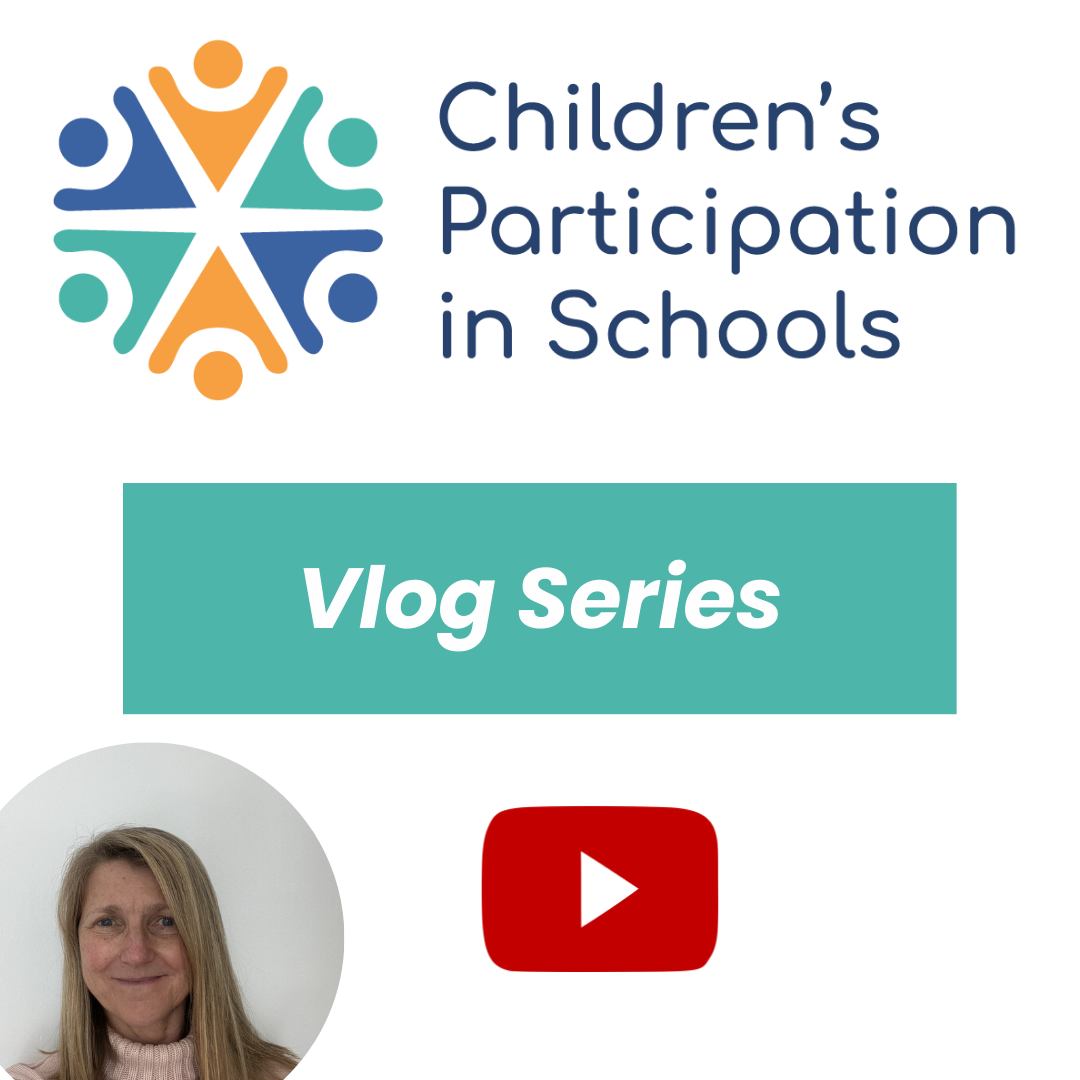
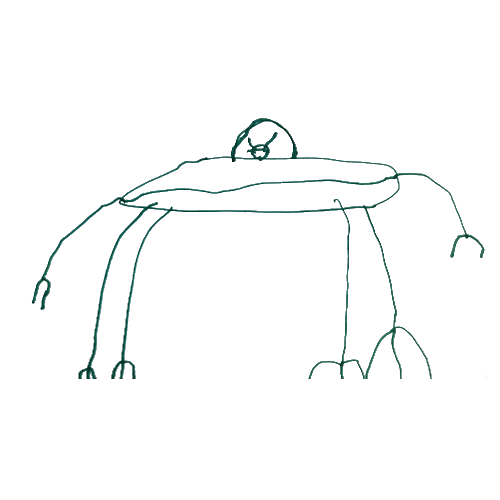
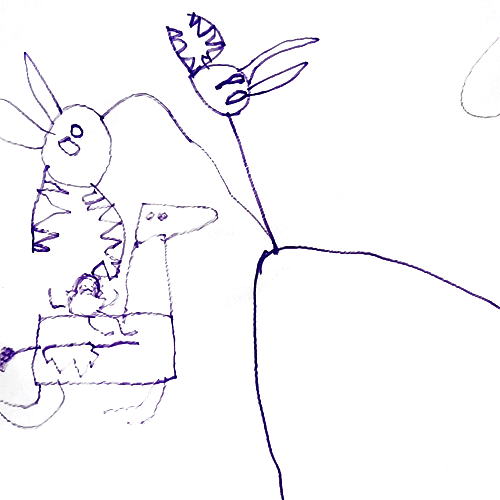
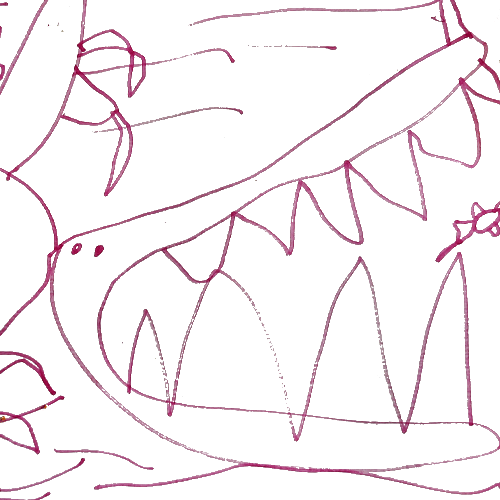
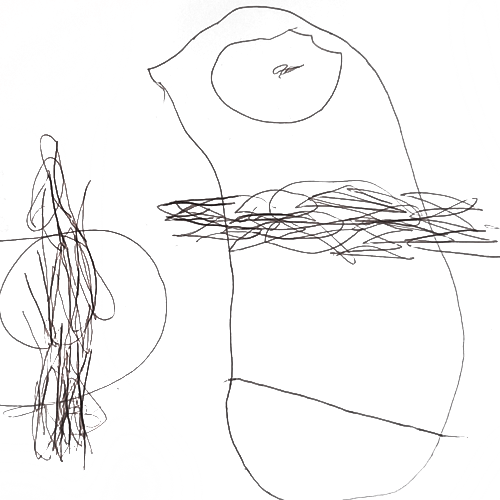
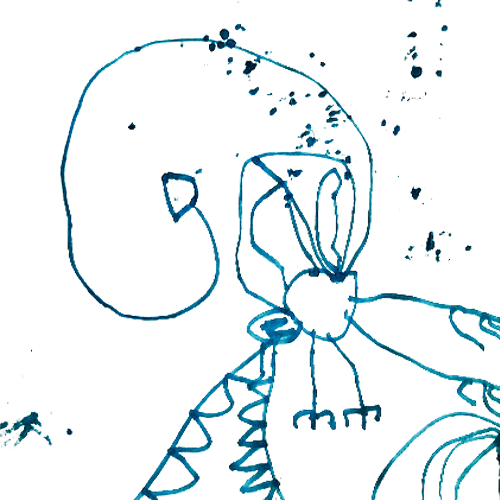
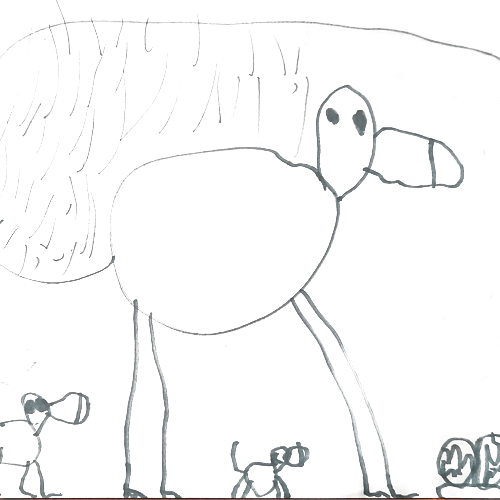
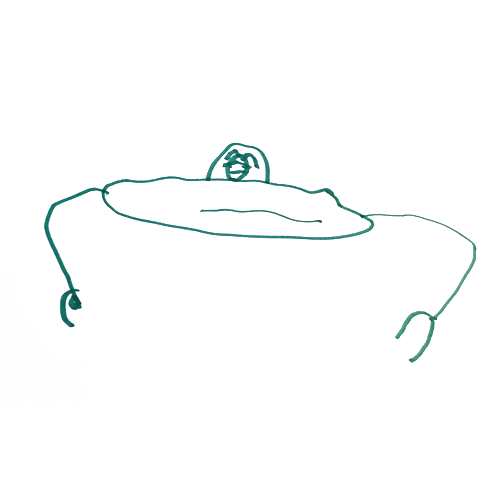
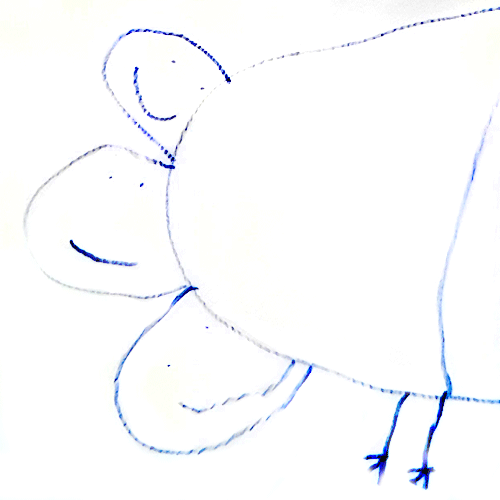
.png)

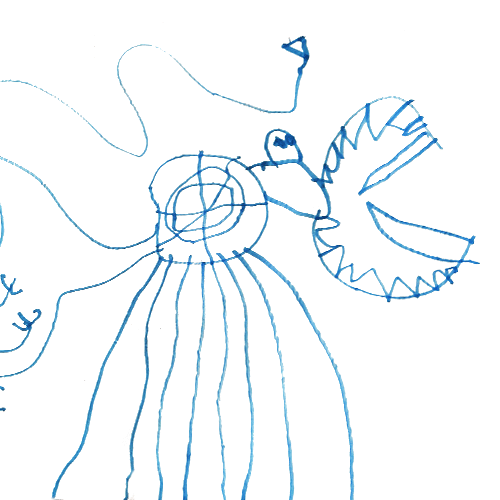
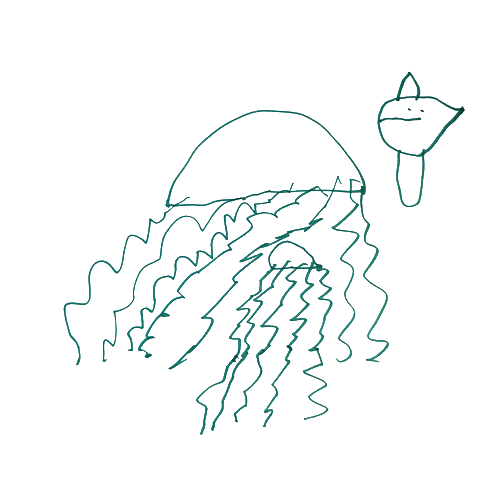
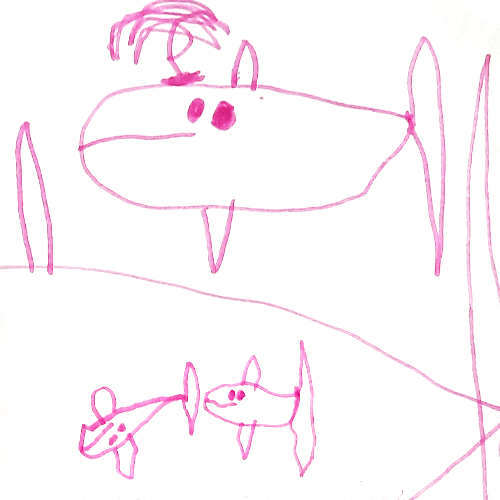
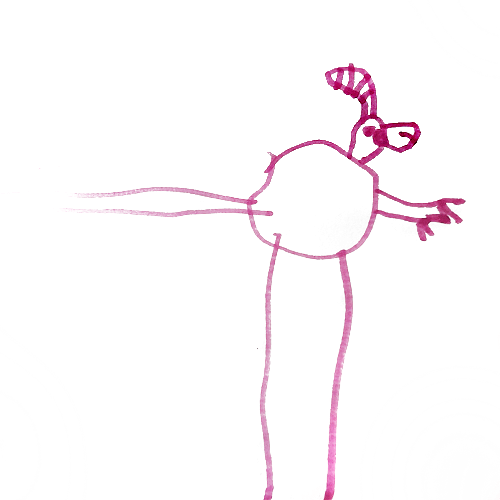
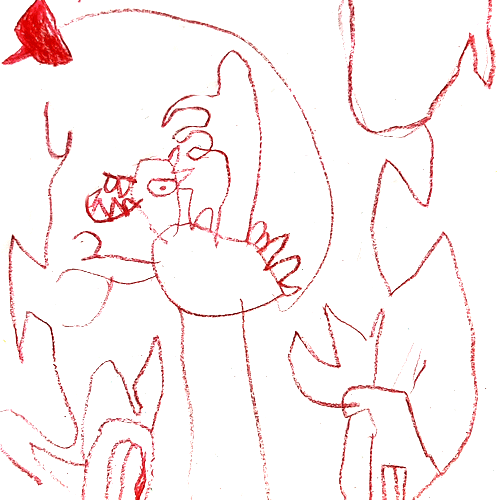
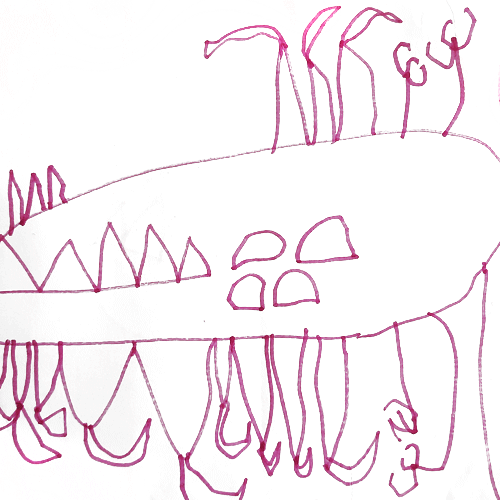
.png)

.png)



.png)


